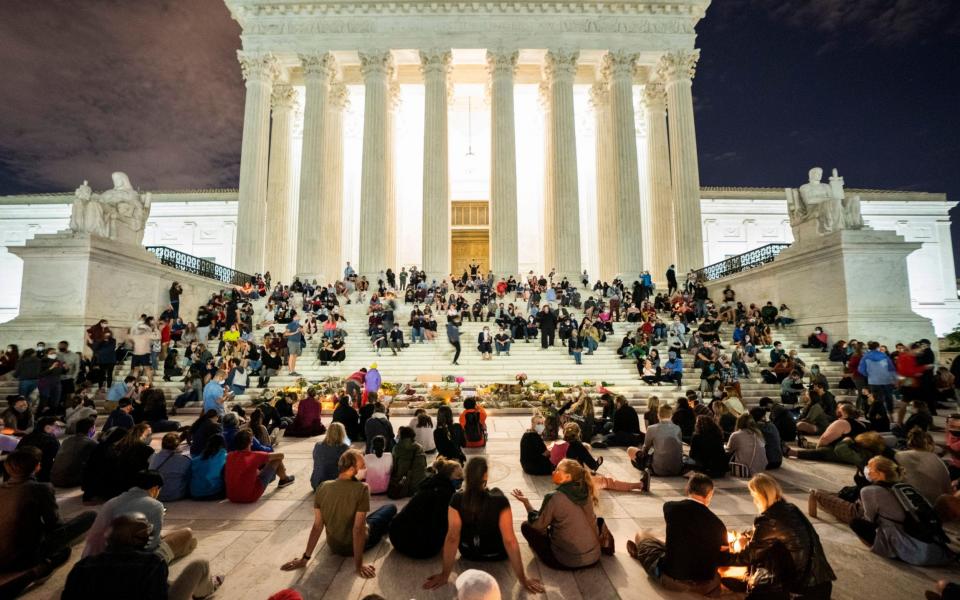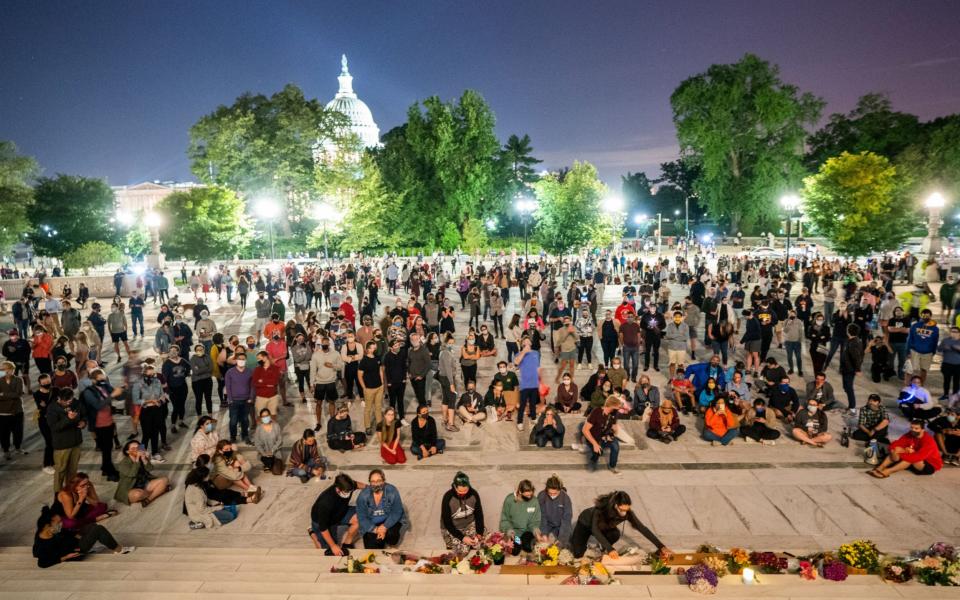Ruth Bader Ginsburg's death has turned the US election on its head - and Trump is salivating

The death of Ruth Bader Ginsburg will turbocharge the US election, giving Donald Trump an extraordinary call to arms to drive his supporters to the polls.
For the third time in just four years Mr Trump will be nominating a replacement justice to the body that decides foundational issues on which American society is based.
The substitution of a Right-winger for Justice Ginsburg, the senior liberal on the court, would lead to a deeply conservative 6-3 majority on the nine-member bench.
With justices serving for life, it would mean Mr Trump could cement his legacy for decades. But the big question now is how quickly the president, and Republicans in the Senate, can get his nominee on to the court.
It may depend on whether Mr Trump is re-elected. He will seize on that to get social conservatives to vote, telling them they have a once-in-a-lifetime opportunity to secure causes close to their heart like the right to bear arms and restricting abortion.
There are less than 50 days until the election on Nov 3, and the confirmation process normally takes longer than that. The average time is about 70 days.
Democrats immediately called for the decision to be delayed until after the election. But Mitch McConnell, the Republican leader in the Senate, is determined there will be a vote on Mr Trump's nominee before the end of the year.
The Senate only has to confirm by a simple majority. Republicans currently hold the Senate 53 to 47.
However, several of the party's more moderate senators - including Mitt Romney of Utah, Susan Collins of Maine, and Lisa Murkowski of Alaska - may be unwilling to ram it through in an election year.
That means the Senate vote is most likely to take place after Nov 3, during the "lame duck" period before the inauguration of Mr Trump or Joe Biden as president in January.

If Mr Trump were to lose, and Republicans drop seats in the Senate, the fate of his nominee would become uncertain.
His message will be simple - "Re-elect me and I will give you conservative control of the Supreme Court for a generation".
But Mr Biden will also use the issue to galvanise his voters, casting the election as the only chance to save the court from Mr Trump.
A recent survey by the Pew Research Center showed the makeup of the Supreme Court was a more important issue to voters than the coronavirus. And that was before Justice Ginsburg's death.
It is also highly probable that Mr Trump, who is seeking to appeal to female suburban voters, will nominate a woman. That may well be Amy Coney Barrett.

Liberals have expressed particular concerns about what impact she would have on the issues of abortion and gay marriage.
Despite the court's current 5-4 conservative majority Justice Ginsburg and the three other liberals had been able to sometimes secure the vote of the conservative Chief Justice John Roberts. In 2012 he cast the key vote to preserve Obamacare.
A 6-3 majority would make irrelevant the occasional straying of Chief Justice Roberts from the conservative bloc.
According to aides Mr Trump has been "salivating" to get a third pick. He is now the first president since Ronald Reagan to do so.
Last week, the president revealed a list of his potential nominees if a vacancy arose, including the senators Ted Cruz and Tom Cotton.
After he was named Mr Cotton tweeted: “It's time for Roe v. Wade to go," referring to the 1973 Supreme Court case that legalised abortion. Whoever Mr Trump nominates it will inflame the passion of voters on both sides.

 Yahoo News
Yahoo News 